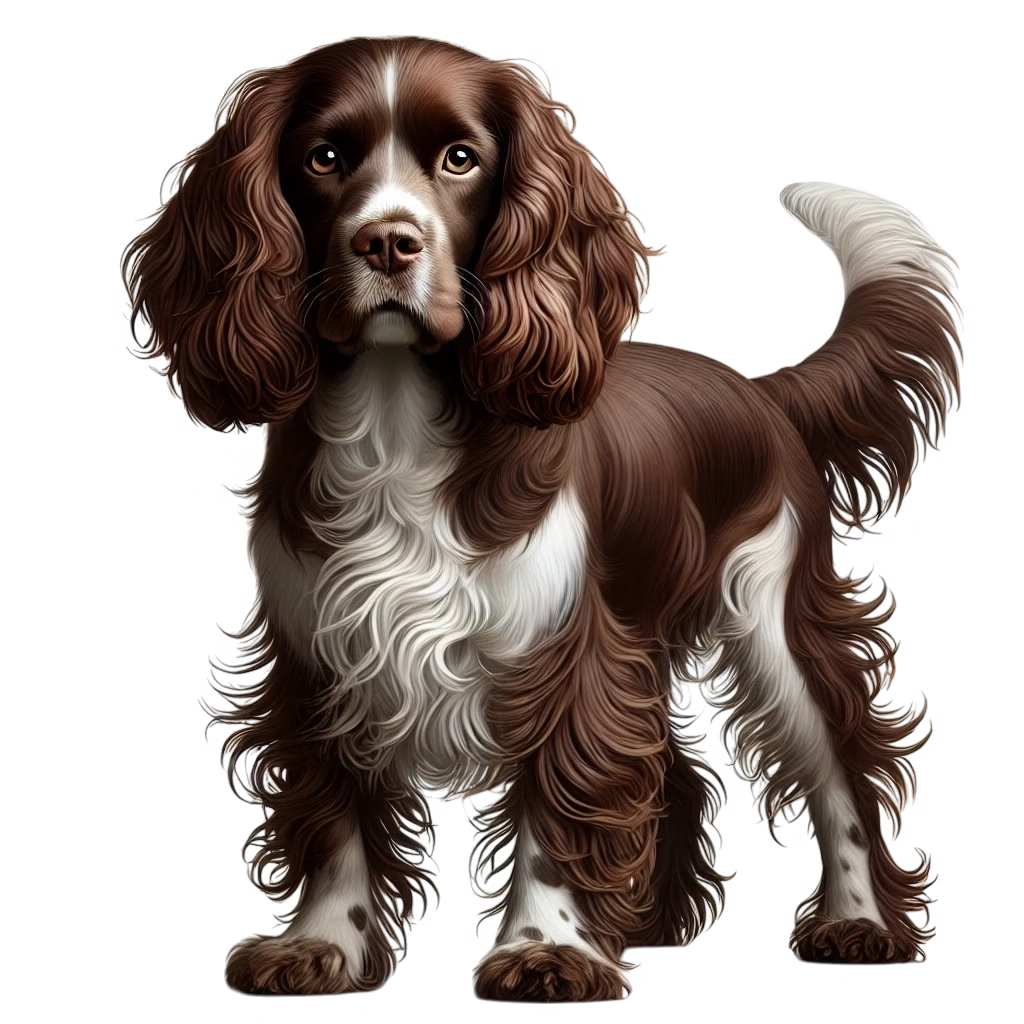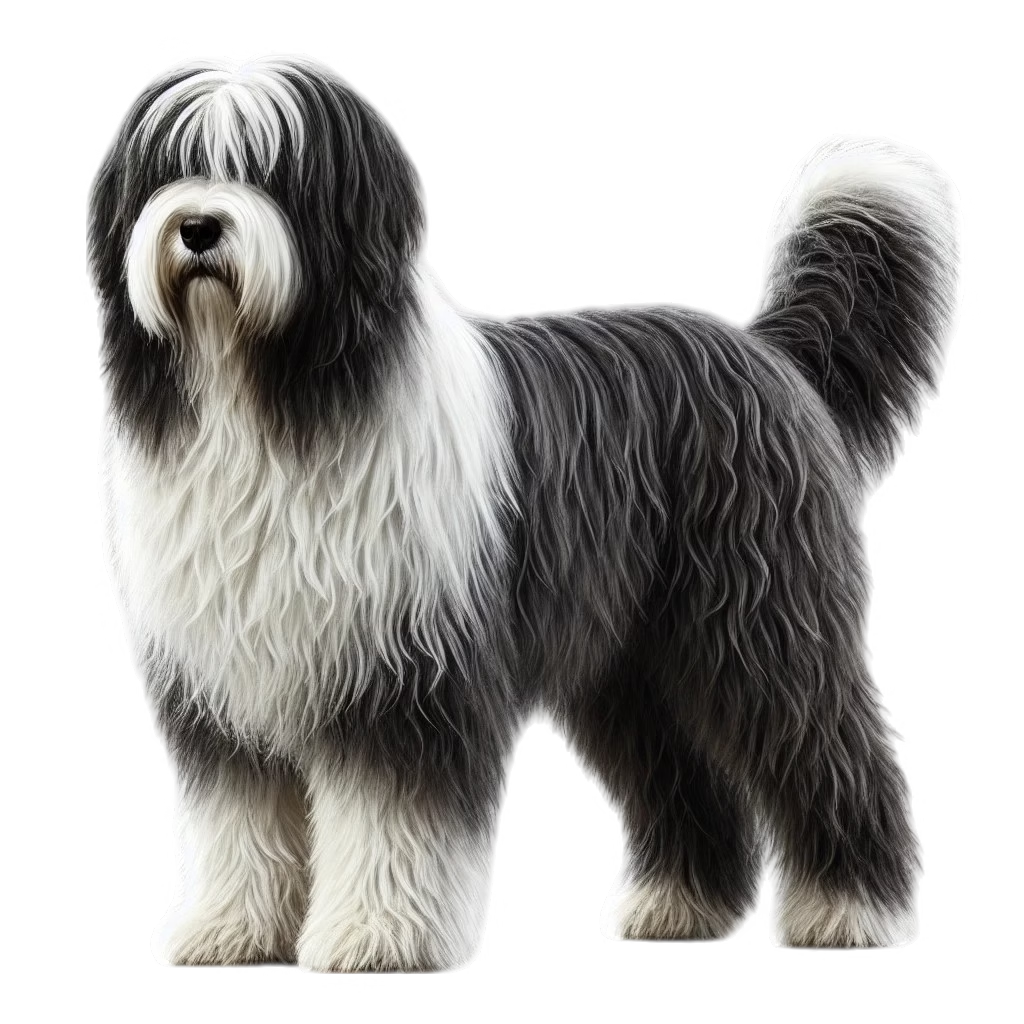Whippet
Quick overview
The Whippet is a fast, elegant dog with a gentle nature and a strong bond with its family. Popular both as a racing dog and a companion, the Whippet combines speed with gentleness, making it a fascinating life companion.
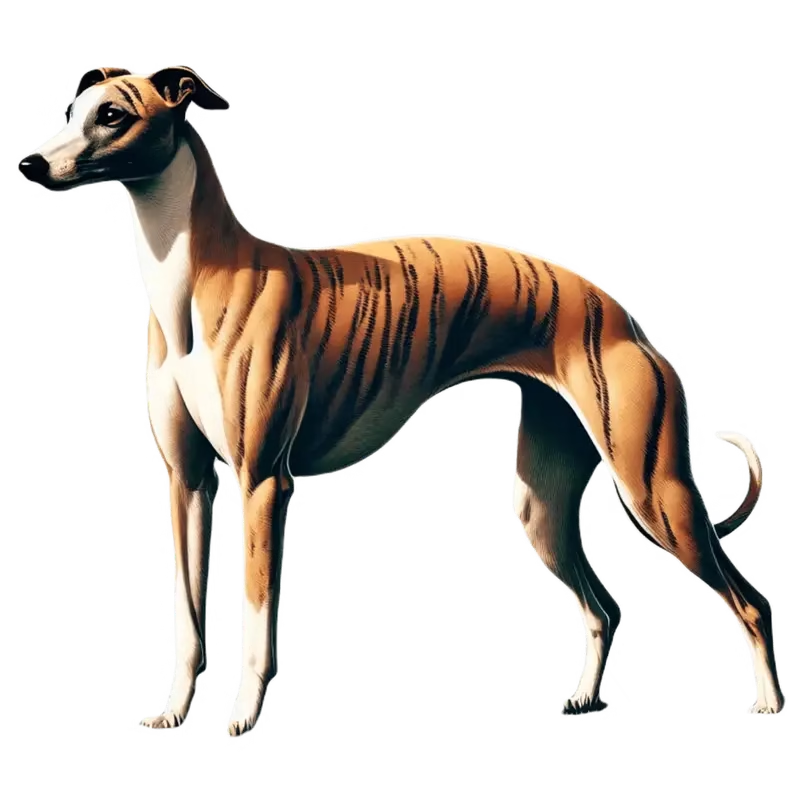
Table of contents
Country of origin
Officially, according to the FCI standard, the Whippet is recognized as a breed originating from the United Kingdom. More specifically, it was first described and classified in England, where it was developed as a smaller version of the Greyhound.
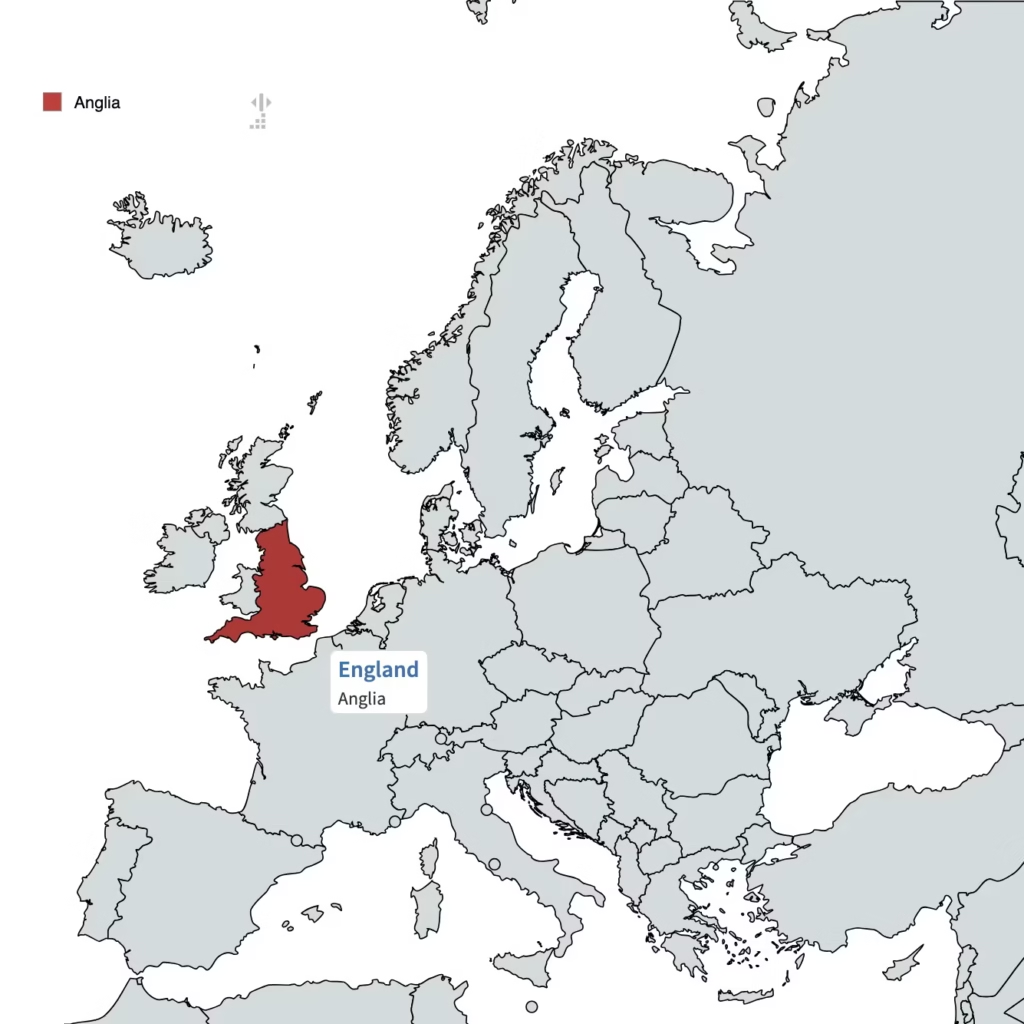
Breed Characteristics
Weight
11 – 18 kg.
Height
Males: 47–51 cm, females: 44–47 cm.
Coat type
Short, smooth coat. All coat colors are allowed except merle.
Lifespan
12–15 years.
Health
The breed is considered healthy but prone to skin and limb injuries.
Temperament
Gentle, affectionate, and balanced, with a strong hunting instinct.
Exercise needs
High need for daily physical activity.
FCI classification
Group 10 (Sighthounds), Section 3 (Short-haired Sighthounds).
Price
$850–$2,500 from reputable breeders; top pedigree pups may cost over $3,500 (AKC FSS registered).
History and Origin
The Whippet is a relatively young breed, developed in 19th-century England. It was created by workers and miners in northern England who needed a fast, agile dog for hunting small game, especially rabbits. The breed is a mix of Greyhounds, small terriers, and other small sighthounds.
Appearance and Build
The Whippet is a medium-sized dog with an elegant, slim silhouette. It has a lean, muscular body with a deep chest and a well-defined waist, giving it a distinctive, agile appearance. Its legs are long and slender, and its feet are built for speed. The head is long and narrow with a slight stop. The eyes are large, oval-shaped, and often dark. Ears are small, thin, and rose-shaped. The coat is short, smooth, and lies close to the body. Whippets come in many colors and patterns, including solid, brindle, with white markings, and various combinations. The tail is long, thin, tapering, and usually carried low with a slight curve.
Temperament and Behavior
The Whippet has a gentle, friendly, and calm temperament. It gets along well with people and other animals. Whippets are typically affectionate and loyal to their owners, often forming strong family bonds. They enjoy chasing games with other dogs, though their speed and intensity can sometimes lead to conflicts. When properly socialized, they can live peacefully with small pets like cats, rabbits, or guinea pigs—but outdoors, such animals may trigger their chase instinct.
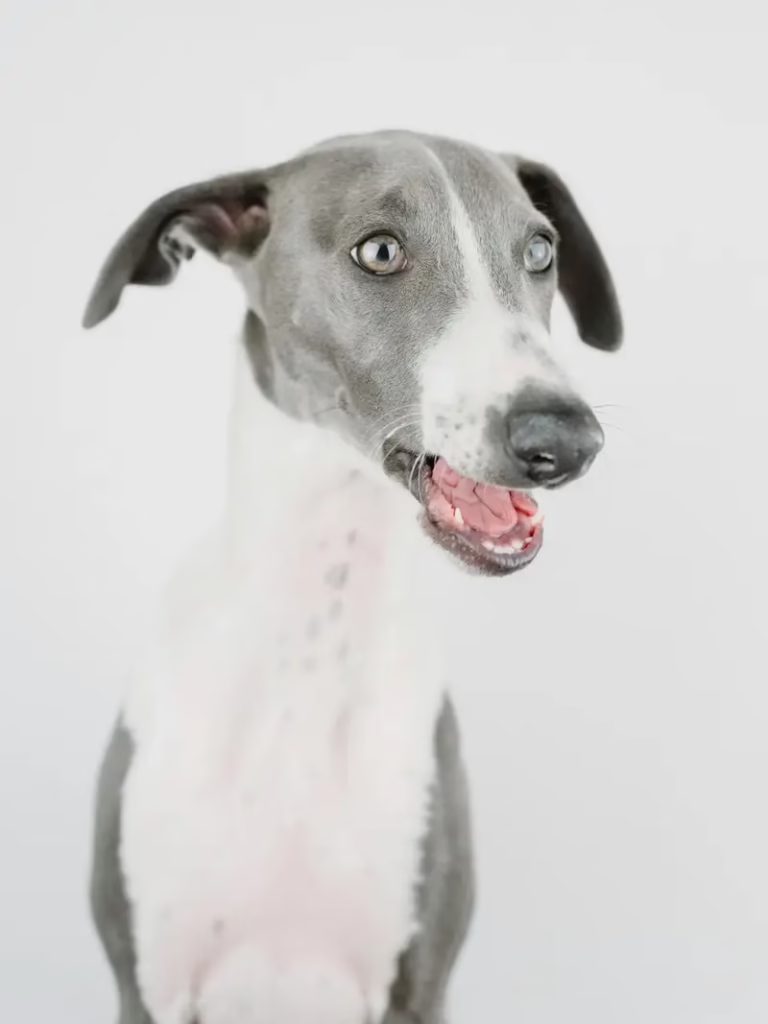
Training and Activity
Whippets are intelligent and eager to cooperate but can be somewhat independent and sensitive, so gentle and consistent training is essential. They get bored quickly, so training sessions should be short and engaging. Active by nature, Whippets love to run and need daily off-leash exercise in a safe, preferably fenced area—but they are sprinters, not endurance runners. They also excel in dog sports like agility, dog frisbee, and flyball.
Health and Lifespan
Whippets are considered a healthy and long-lived breed, but due to their build, speed, and high activity level, they are prone to orthopedic injuries, skin damage, and paw pad abrasions. They may also experience food and environmental allergies, joint dysplasia, cryptorchidism, alopecia, demodicosis, hypothyroidism, primary lens luxation, persistent pupillary membranes, deafness, cataracts, and vascular tumors such as hemangiomas and hemangiosarcomas. Like other sighthounds, Whippets are sensitive to anesthetics and naturally have lower thyroid hormone levels and higher blood creatinine levels than other dogs.
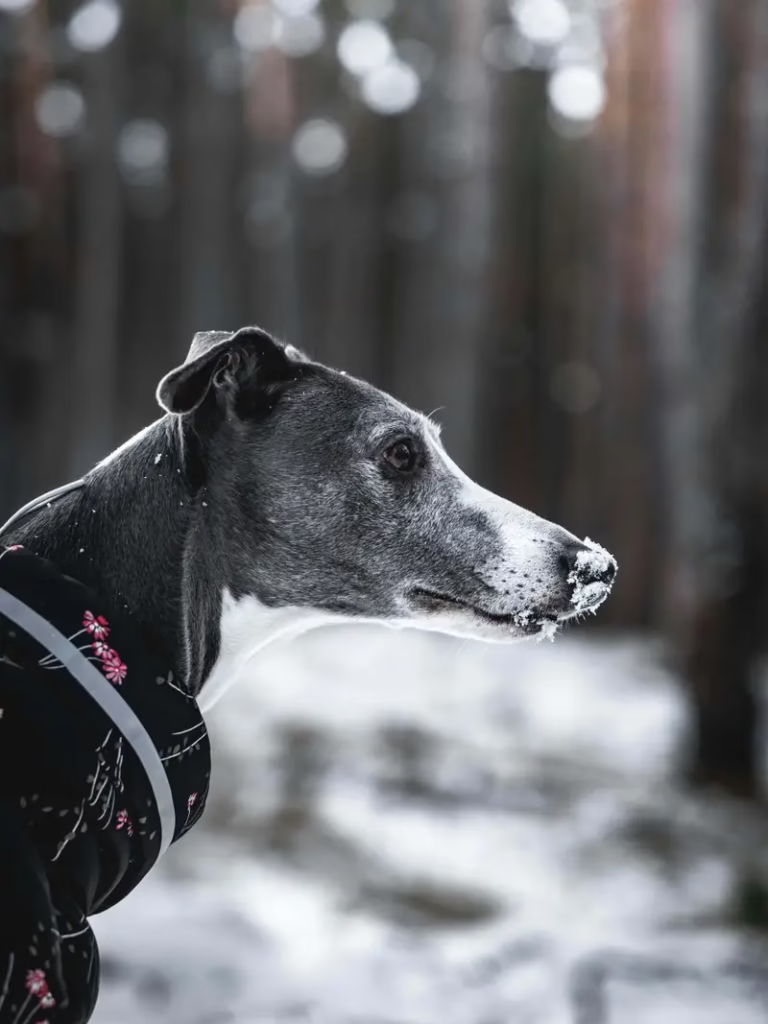
Grooming and Care
Whippets have short, smooth coats that are easy to maintain—weekly brushing is usually enough. However, they are sensitive to extreme temperatures. In winter, they may need protective clothing to stay warm, and in summer, sun exposure should be limited to prevent overheating; sunscreen may also be necessary. It’s important to provide them with soft, warm resting spots—especially if you don’t want them sleeping in your bed, which they usually love.
Diet and Nutrition
Whippets have no special dietary requirements, but due to their activity level, it’s worth consulting a pet nutritionist—especially for dogs involved in sports.
Cost of Ownership
Whippets are a moderately expensive breed to maintain, but owners should be prepared for potential additional costs related to treatment and rehabilitation of common orthopedic injuries.
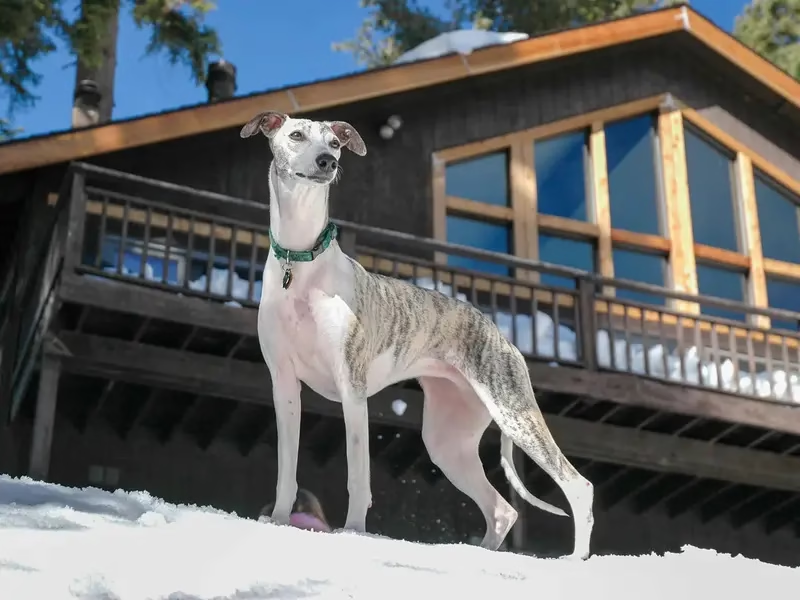
Buying or Adopting
Whippet breeding is fairly popular in Poland and maintains a high standard. There is a wide selection of puppies available—whether for shows, sports, or companionship. An alternative to buying a purebred Whippet from a breeder is adoption through a shelter or rescue organization. While there are foundations in Poland specializing in sighthounds, purebred Whippets are relatively rare; it’s more common to find sighthound mixes, which are usually slightly larger.
Breeding Your Own Dog
Breeding Whippets requires commitment, passion, and knowledge, as with any breed. A major advantage of Whippets is their relatively small size, low space requirements at home, and typically good compatibility with other dogs. Breeders often keep groups of a dozen or more Whippets that live together peacefully. However, it’s important to meet their needs for exercise, grooming, and proper socialization. Responsible selection of future puppy owners is also essential, as the breed’s growing popularity increases the risk of impulsive purchases.
Did You Know?
Summary
Behaviorist’s Insight
Whippets are known for their gentle temperament and striking elegance. They are intelligent and quick learners but need varied training and a soft approach. Strongly attached to their owners, they may develop separation issues if not taught to stay home alone. Regular physical activity is essential to burn off energy and prevent boredom-related behavioural problems. Despite their energy outdoors, they are usually calm at home and love lounging on soft furniture. Their social and friendly nature means they typically get along well with children and other animals—provided they are properly socialized from puppyhood.
Veterinarian’s Insight
Whippets are generally a healthy breed. However, due to their slim build and low body fat, they are more sensitive to cold and may need extra protection in winter, such as warm clothing. They are also prone to injuries, especially during intense physical activity, so it’s important to provide safe conditions for running and play.
